No bone grafting and best success rate
A basal implant is a specialized dental implant anchored in the basal part of the bone, also known as the cortical bone, the strongest and most mineralized section of the jawbone. Unlike traditional implants that depend on osseointegration in the softer spongy bone and require lengthy treatment times, basal implants utilize the durable cortical bone for immediate stability.
Basal implants rely on a unique mode of retention, being secured like screws into the hard, mineralized cortical bone, which does not integrate in the same way as spongy bone. This makes immediate loading essential, allowing the prosthesis to connect the implants and evenly distribute masticatory forces across the jaw, ensuring both stability and functionality.
There are two main types of basal implants:
At our dental centers, we specialize in the latest-generation basal implants, recognized for their advanced design and reliability, making them an ideal solution for complex dental cases.
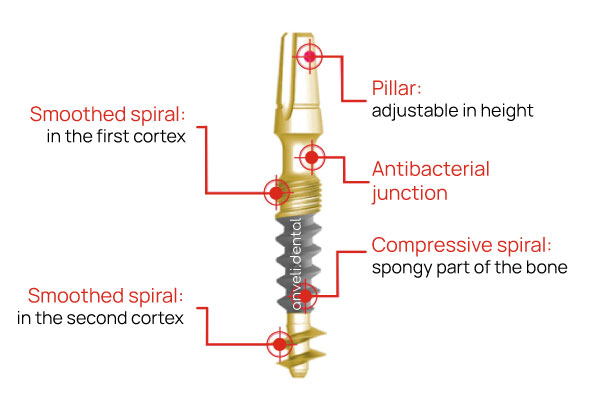
Ihde Dental - The modern basal implantolgy
The new generation of basal implant was developed in the late 1990s in Switzerland by Professor S. Ihde. Manufactured near Zurich in the canton of St. Gallen, these implants are branded by Ihde Dental.
Professor Ihde and Anveli Dental specialize in using this advanced technology to treat the most complex cases around the world.
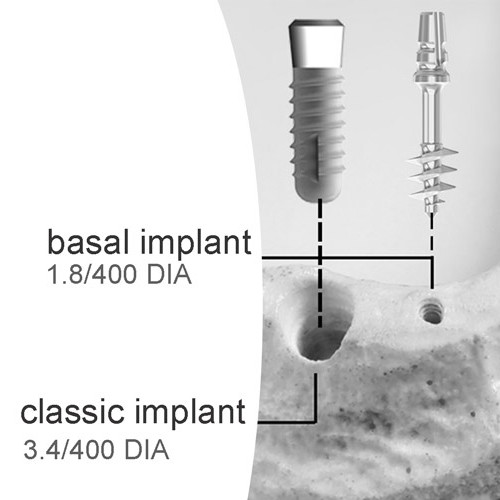
The placement of the new generation basal implant and the fixation of the prosthesis are completed in a single 7-day treatment process. The procedure typically spans 4 days, during which the patient will have at least 5 clinic visits for various tests and adjustments. The final days focus on follow-up visits to ensure optimal outcomes. Unlike rushed 3-day treatments that involve only one adjustment, we prioritize a comprehensive approach for long-term success.
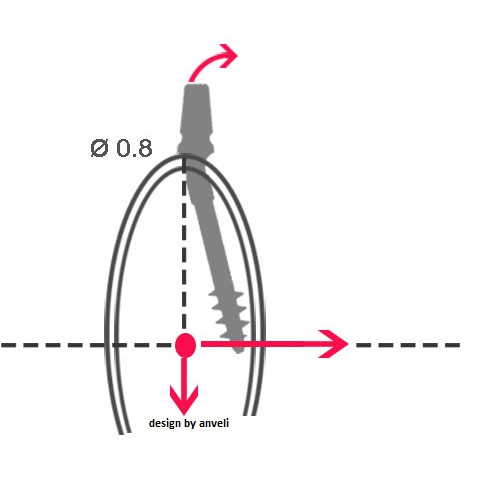
Prostheses designed for basal dental implants are highly specialized to ensure perfect stability and optimal distribution of chewing forces across all implants. The loading protocol is meticulously followed to achieve durable and effective results. The laboratories of the International Implant Foundation, under the leadership of Professor Ihde in Munich, have developed high-tech materials that meet the stringent requirements of basal implant prosthetic protocols. These advanced materials combine all the necessary qualities to ensure the long-term success of the treatment and patient satisfaction.
Prosthesis on basal implant
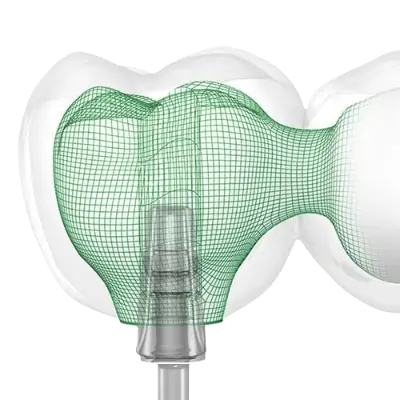
“Is the Basal Implant Viable or Dangerous?”
While no medical intervention is entirely risk-free, basal implants are highly viable when performed under the right conditions. With proper adherence to protocols and mastery of the technology, success rates exceed 99%.
Key Factors for Success
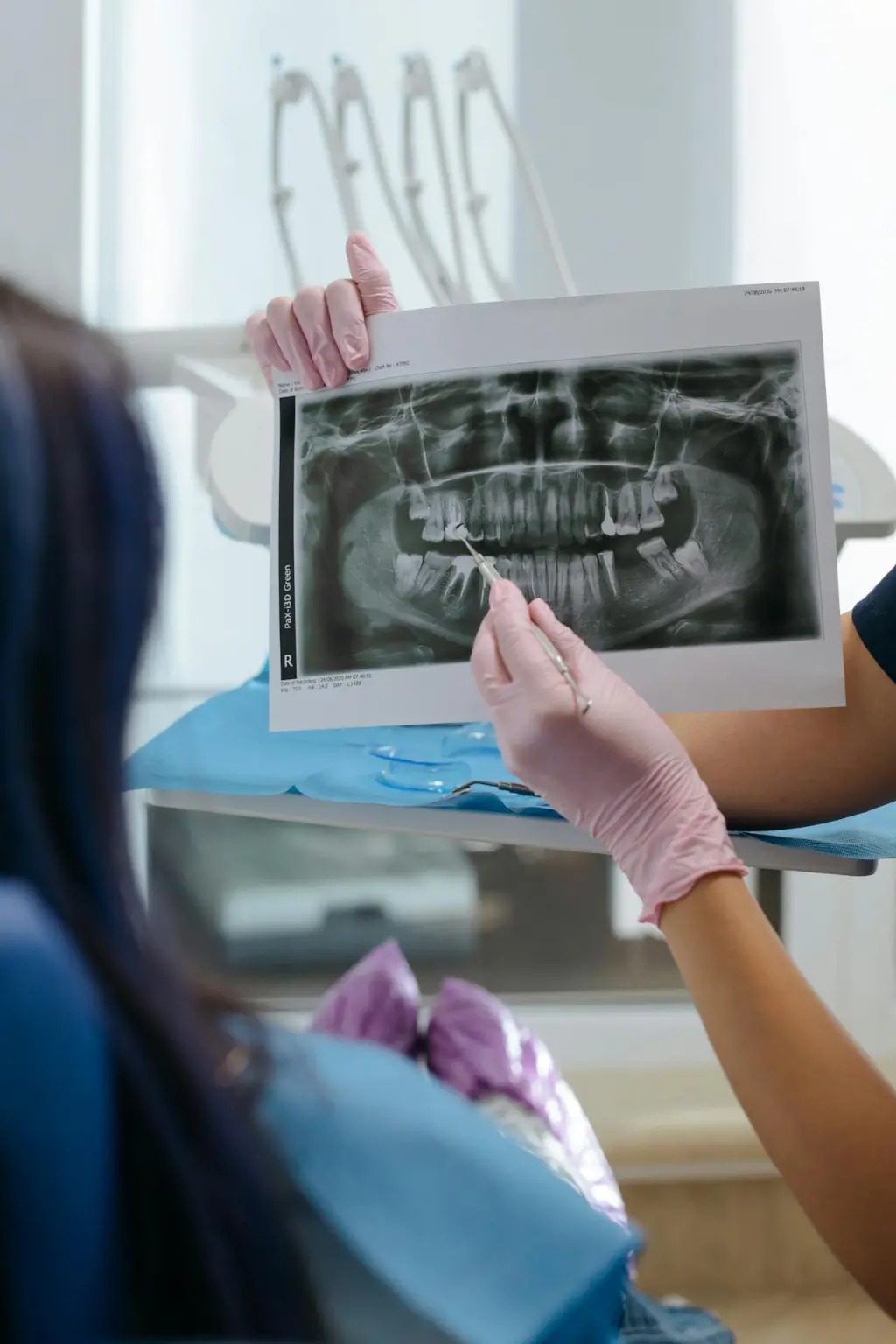
During a dental implant treatment, you can benefit from a procedure that allows the operation to be performed under general anesthesia or under sedation. This latter procedure, which is more gentle, allows you to be treated in outpatient care (You can go home or to the hotel the same evening without the need to stay in the dental clinic.) Most patients receiving implantology treatment ask to be put asleep which took place in a few minutes.
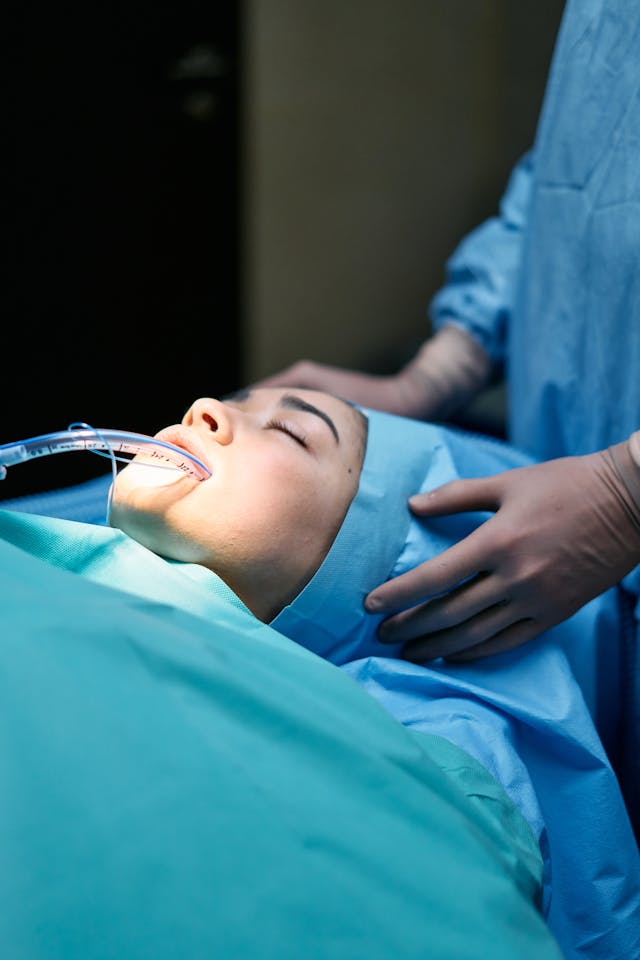
Basal implant for or against?
Basal implantology being a technology requiring a significant infrastructure and specific training for the entire medical chain ( Dental surgeon, prosthetist, technicians ), most dentists do not have the necessary qualifications to place a basal implant. Everyone preaches for their own parish, they will tend to underestimate the qualities of the basal implant. Although it is indeed not suitable for replacing 1 or 2 teeth, the basal implant provides the best success rate when it comes to replacing all the teeth in the jaw.
Am I eligible for the basal implant?
To find out if you are eligible for a basal implant, you must first contact our expertise department. They will send you all the documents necessary to obtain a treatment plan and an estimate. Basal implantology is especially suitable for complete restorations of the dentition. For patients wishing to replace only one or two teeth, other systems may be offered to you which will provide the best success rate.
What is the price of a basal implant?
The price of a basal implant differs according to several criteria. The place of the operation (the price of the basal implant tends to be higher in our dental clinic in Switzerland), the operative complexity (Plus the operation is complex, the longer the placement of the basal implant will be, the higher the price will be), the type of basal implant (there are more than a hundred different sizes and shapes, the price of the implant basal implant varies according to these criteria). It is estimated that the price of a basal implant (Ihde Dental Original) varies between 500 € and 800 €. Attention, some dental clinics offer copies of basal implants often charging for them below 400 €.
What is a BOI basal implant?
The BOI implant is the first generation of a basal implant. It was invented thirty years ago by a French university professor from Nice. The BOI basal implant obtains impressive results but requires an invasive operation because the implanted disc is placed by the lateral approach. Also, a detachment of the gum is necessary and shearing of the bone must be carried out. It is, therefore, necessary that the treatment be carried out in 2 stages.
How long does the treatment take?
In general, the treatment lasts between 4 and 5 days but we ask our patients to allow 7 days in order to overcome any unforeseen circumstances and in order to carry out check-ups and adjustments. See the progress of the operation
Does social security reimburse basal implants?
It depends, a basal implant is considered by Social welfare as a dental implant. If your your health insurance covers this type of care you can get a refund.
What materials are basal type dental implants made of?
The basal implants are made from a stable alloy of medical titanium. This material is neutral and without risk of allergy.
Can I place the implants immediately after tooth extraction?
Yes, it is indeed possible and even advisable to place this type of dental implant immediately after tooth extraction. This allows the bone to build upon the implant and avoids a second trauma. See more on immediate dental implant
What is the lifespan of the basal implant?
The basal implant is made of a stable titanium alloy. They can therefore last a lifetime. Indeed this material does not degrade and is not subject to any corrosion.
How many basal implants do I need?
The number of implants required is defined after a study by our expert service. The protocol of the International Implant Foundation and Prof. Ihde recommends 10 basal implants on the upper jaw and 8 implants on the lower jaw. This number may be revised based on clinical findings such as loss and lack of bone for example.
How should you maintain your basal implants?
For the maintenance of dental implants, we recommend the use of an ultrasonic toothbrush as well as a range of products specially adapted for basal dental implants. See recommended maintenance products
Who can provide post-operative follow-up for the basal implant?
It is strongly recommended that you entrust the follow-up of your basal implantology treatment to the practitioner who carried out the care and the installation of the basal type dental implants. He knows your oral situation and has your medical file. Also, the treatment protocol is specific and a particular qualification is necessary. There are not many dentists who have been trained and obtained qualifications in basal implantology. However, you can carry out your postoperative follow-up in one of the dental clinics which practice basal implantology.
How is it possible to have a dental implant if I have no more bones?
Have you been told you don’t have enough bone for dental implants? Don’t lose hope! When dentists say this, they usually refer to the spongy bone needed for traditional implants. Basal implants offer a different approach.
Basal Implants: A Solution for Insufficient Bone
Basal implants, are anchored in the cortical bone. This is the dense, outer layer of bone that remains strong even after significant bone loss.
Why Choose Basal Implants?
Cortical bone provides a stable base for your new teeth.
If you’ve been told you’re not a candidate for traditional implants due to bone loss, basal implants may be the solution. Consult with our qualified expert to discuss your options.
What are the risks of the basal implant?
Like any medical intervention the 0% risk does not exist. However the BAx basal implant is much less risky than other implantology systems, moreover, post-operative corrections are possible unlike implantology traditional See the risks of the basal implant
I am a smoker, can I have a dental implant?
Yes, although smoking causes many problems for oral and general health, the success rate in smokers who have had basal implantation is the same as in non-patients. However, smoking is strongly contraindicated in patients with traditional dental implants. See our article on the implant basal in smokers
Smoking is the source of many problems for oral health and more generally for health....
Dental implants have evolved into one of the most advanced and successful options for replacing...
Placing a (traditional) dental implant? Although for both types of implantology it is a part...